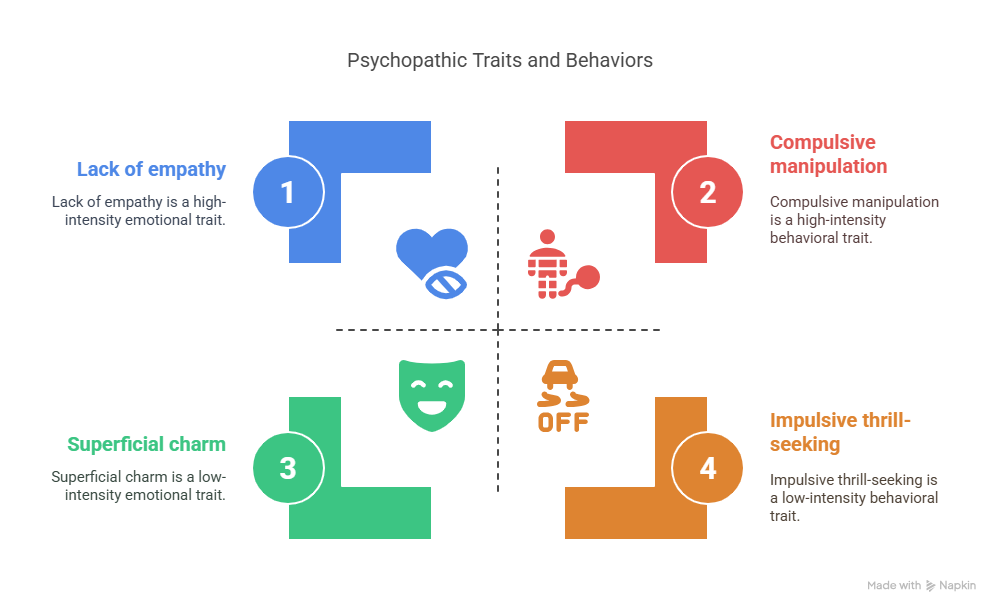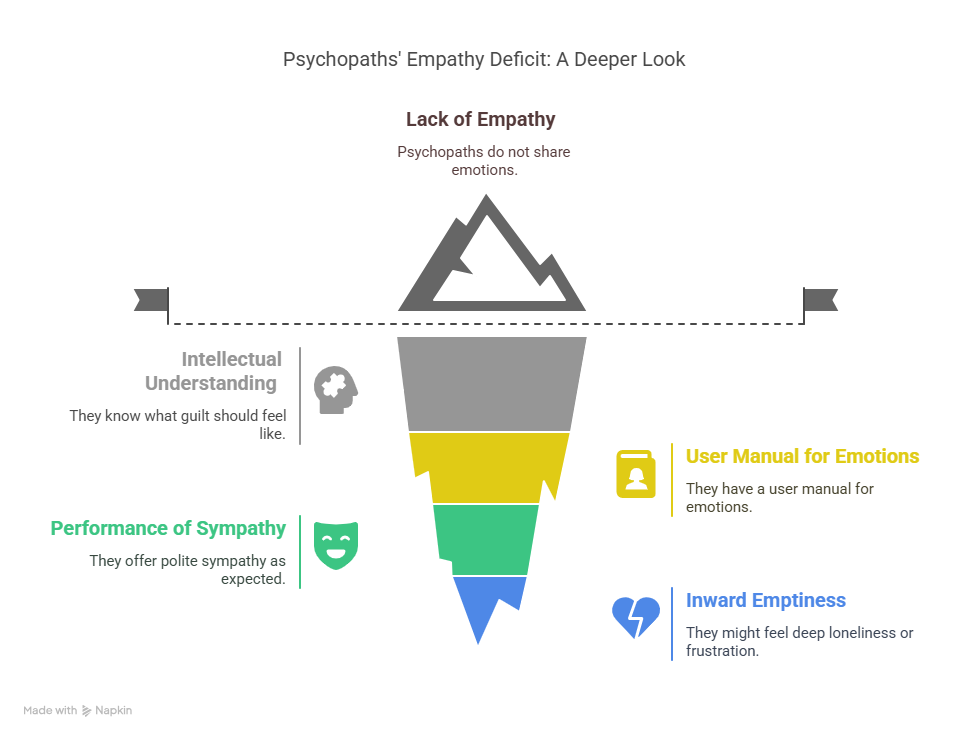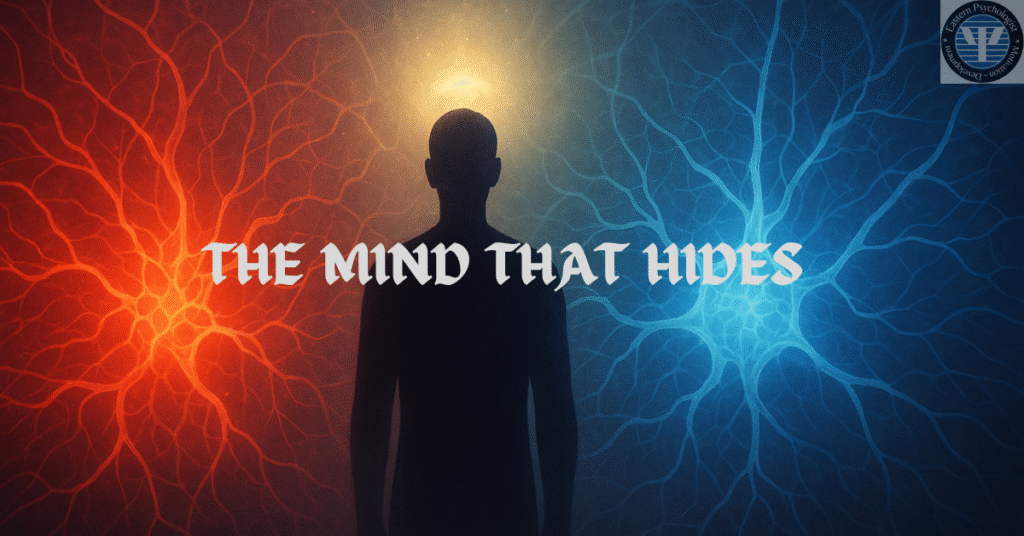Written By Raheela Shahid & Taaha Ahmad
Table of Contents
She was called Fatima and on the superficial picture, there was nothing wrong with her. Fatima was loved by everyone at the work place; she was patient toward her patients as a psychologist, she always greeted her neighbours with a broad smile, and had the kindness to save stray puppies on her days off.
One evening, in the half light of a hospital corridor two colleagues, one of them, Zain, was appalled to find that crooked city voice was but a part of the mask that concealed a mind that was concealed.
Over months, Zain had watched Fatima weave a cocoon of normalcy. She laughed at coffee breaks, gave thoughtful advice, and openly shared stories about her family. However, there were the slightest fissures, small dishonesties in her appointments, chilliness when she was involved with a complaining patient. He was scratched out of that. He let it go, and how could such a good women contrive something bad?
Then came the night he saw the truth. Fatima was loading premium electronics and branded clothes into a trash bag. When Zain quietly asked why she was discarding them, she smiled uneasily and said, “No big deal.”
His heart pounded. This was the person I trusted. The beautiful facade shattered. The calm, friendly colleague he knew had a surreal, empty look in her eyes. As he backed away, Zain realized: he had been fooled. The perfect normalcy around him was an illusion…
The Hidden Mind of Psychopathy
Psychopathy is not only a Hollywood villain but also a real personality type that has an utterly sinister twist. Individuals with psychopathy are characterised with superficial appeal, callousness and impulsive and thrill seeking nature. They violate rules with impunity, or they can assault people without believing they have caused a wrong.
Researchers describe them as narcissistic and sensation-seeking individuals who “lack empathy” and “compulsively manipulate others”. They may lie effortlessly and feel above the law.
The baffling part is how normal they seem. They maintain a polished exterior while harboring this emptiness. As Jeff Wise notes, many people with psychopathic tendencies are “highly deceptive… and yet manage to maintain a façade of normality”. In other words, they look completely ordinary, sometimes exceptionally so.
Clinicians often link psychopathy to Antisocial Personality Disorder (ASPD), but classic ASPD is mainly about behavior (law-breaking, aggression). A psychopath is an individual that is friendly superficially, but internally have no feelings towards the people they are fooling. This is the innocence/devil that is so sweet on the outside that is freezing cold on the inside, this is the feature that makes psychopathy so deadly and confusing.
Neuroscience offers some clues. Scans of the brain usually show, in such a case as contrasting, the brain would have differences in the parts like the amygdala (where the emotion lies) and the frontal cortex (which deals with self restraint). As an example, an under-reactive amygdala could reason why they are not scared or guilty.
Many experts now view psychopathy as partly neurodevelopmental: its roots can be seen in childhood. Studies find that even toddlers who never feel guilty or respond to punishment tend to develop these traits. By adolescence, those kids are more likely to display cruelty and deceit without conscience. In short, psychopathy often runs deep and starts young.

Deception Behind the Veil of Normalcy
The illusion of normality: they look calm on the outside, utterly empty, and not to mention, controlling.
Psychopaths excel at this kind of thing. They observe others constantly, learning exactly how kind people act. They know smiling and nodding build trust, so they emulate it flawlessly. Inside, however, they experience a profound disconnect.
As one self-aware psychopath explained: “I can see that others are upset or happy, and I know how I’m supposed to react. But it’s like watching a foreign film without subtitles… I can guess at the plot, but I can’t truly understand or feel it.”
This means a psychopath can fake almost any reaction. They might volunteer at a shelter and smile sympathetically one day, then betray someone the next, all while looking completely sincere. They understand the puzzle pieces of human emotion but lack the glue. That’s why so many of them slip through the cracks of our lives. Even trained experts often fail to spot them: the psychopath’s veneer of normality is “too seamless to detect”.
Empathy, Emotions, and Conscience
Most of us feel a pang of guilt after hurting someone, or get goosebumps seeing someone in pain. Psychopaths do not. They see what guilt looks like but it’s doesn’t land on their heart. Psychologically, one would say that it was an empathy failure.
They do not share the emotions that others feel. If someone cries, a psychopath will note something’s wrong, but the emotional resonance is missing.
Experts describe psychopaths as having a user manual for human emotions, but no actual feelings. One psychologist said, “They have a user manual for emotions but can’t feel the emotions themselves”. They can identify sadness or fear in others, but the words remain abstract. It’s all intellectual.
In practice, this means a psychopath might offer polite sympathy because they know it’s expected, yet it’s purely a performance. They can even cry on cue if it serves them, without any real sorrow. Inside, they might be completely unmoved. Some report feeling a deep loneliness or frustration, thinking, “I know I should care… but I just don’t.” This split between outward care and inward emptiness can weigh on them over time.

The Internal Struggle
The popular cliché is “they feel nothing,” but the reality can be more complicated for those who recognize it. Self-aware psychopaths often report an internal battle. They understand society’s morals but don’t feel bound by them. It’s like their mind is split between impulse and reason.
Many describe living by self-made rules instead of conscience. For example, one might say: “I’ll be polite or helpful only to get something in return,” or “I avoid crimes only because I want to stay free, not because I feel sorry.”
According to research, such individuals often develop “personal codes of conduct based on rational self-interest rather than emotional or moral considerations”. They logically know what’s “right” but only follow it when convenient.
Wearing this mask constantly can be exhausting. Imagine performing empathy and normalcy every day, knowing it’s an act. Some psychopaths compare it to a never-ending role-play. The effort of juggling impulses and appearances can create stress or even paranoia (“What if they see through me?”).
In short, there can be conflict in their minds, it’s just a different kind. It’s about managing appearances and impulses, rather than wrestling with guilt.
Islamic Reflections: The Heart’s Battle
To the Islamic school of thought, this inner conflict is not new. The Islamic teachings assert that the human soul (nafs) possesses both impulses, good and evil. By default, the nafs ammarah inclines toward wrongdoing. As Allah tells us, “the self is prone to evil, except those upon whom my Lord has mercy”.
This means everyone’s soul has a dark side needing guidance. Fatima’s story is a stark example: her outward light masked a darkness within.
The Qur’an explicitly links deceit and hypocrisy to a sick heart. It says, “In their hearts is a disease… [because] they lie habitually.”. In Islamic thought, lying, betrayal, and cruelty are called “diseases of the heart.” Scholars list traits like arrogance, envy, and cruelty under this concept. The behaviors of a psychopath fit these descriptions of spiritual illness.
Yet Islam also teaches hope for healing. The Prophet ﷺ illustrated that sin stains the heart like rust, but sincere repentance polishes it clean. We are told not to despair of Allah’s mercy: “Allah forgives all sins for those who repent”. In practice, this means even someone as troubled as Fatima can find redemption through faith. The doors of repentance remain open to every person.
For Muslims, these teachings mean we must balance accountability with compassion. Someone displaying psychopathic traits should face fair consequences, but we should also pray for their guidance. The Prophet ﷺ taught that suppressing base desires can lead one to Paradise. By promoting good character and remembering Allah’s mercy, we help protect society and nurture even the most hidden souls.
Conclusion
Psychopathy shows us that the human conscience is complex. Science explains how brains and development can shape a mind that hides, but faith reminds us of the moral stakes. When these two are combined, we end up with the wisdom of balance: psychology will show us how we as individuals should be able to identify and deal with these traits and Islam will be able to bring us back on track on why empathy and integrity must be important.

CTA
Subscribe to Eastern Psychologist for more thought-provoking articles bridging mind and spirit. Whether you’re a student, clinician, or seeker, your voice matters. Let’s continue this exploration of psychology and faith together.


Pingback: 5 Essential Parenting Styles: What Every Parent Should Know - Eastern Psychologist